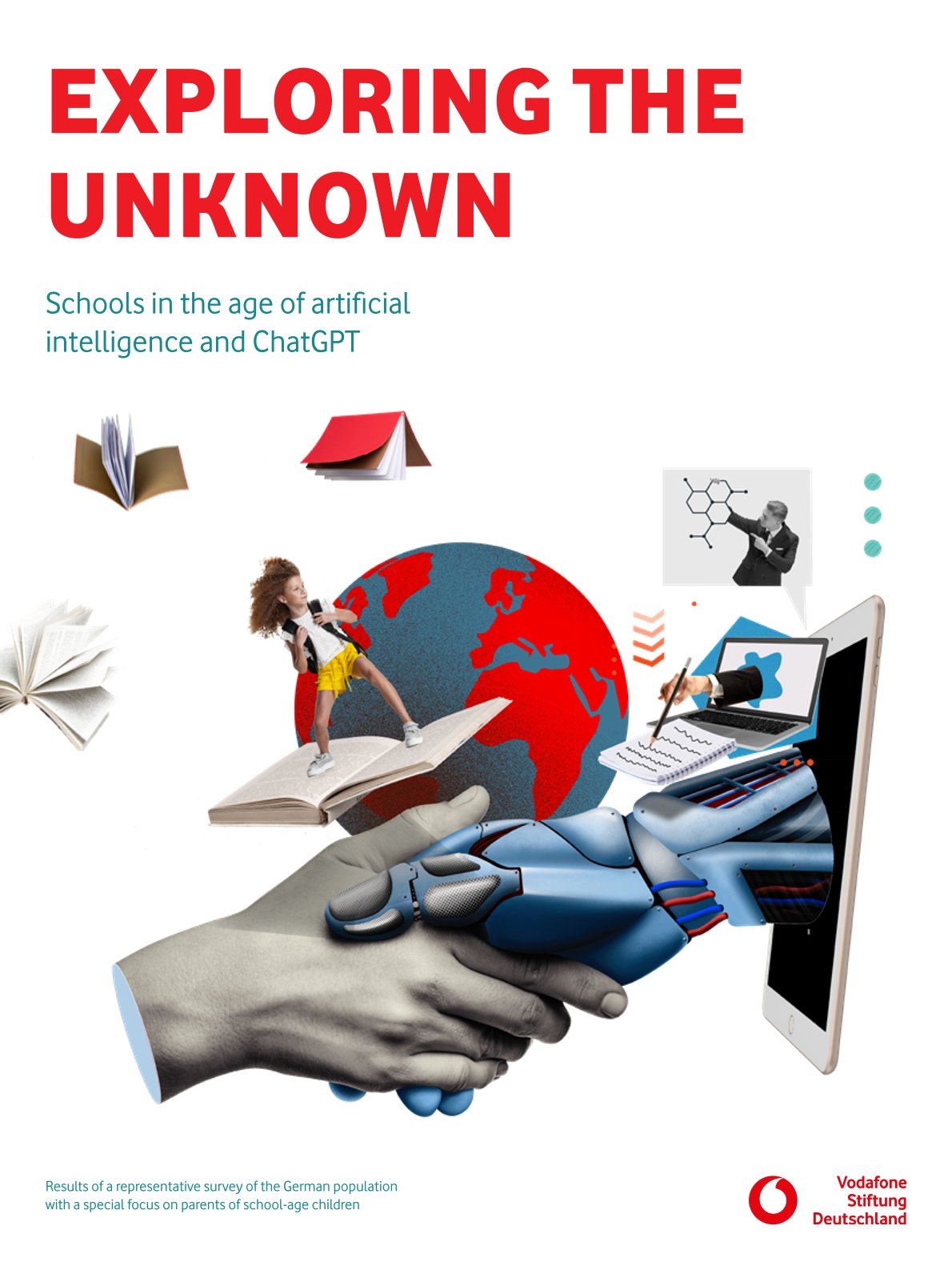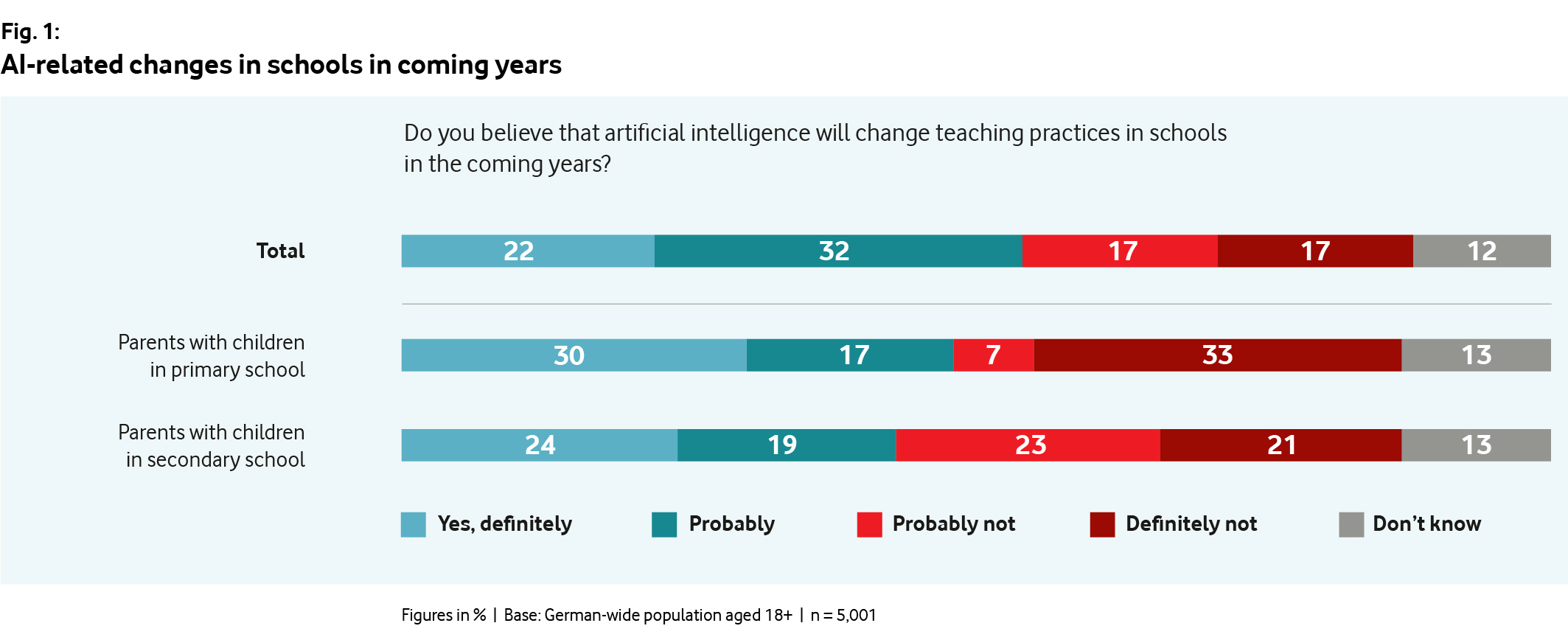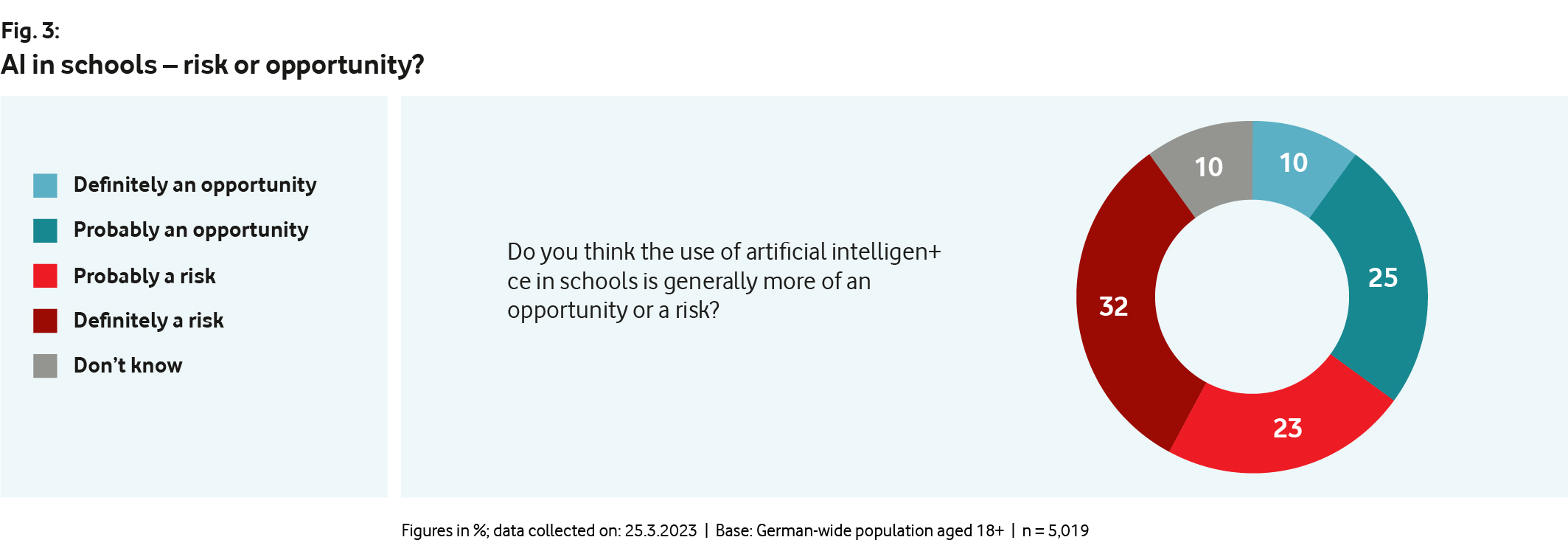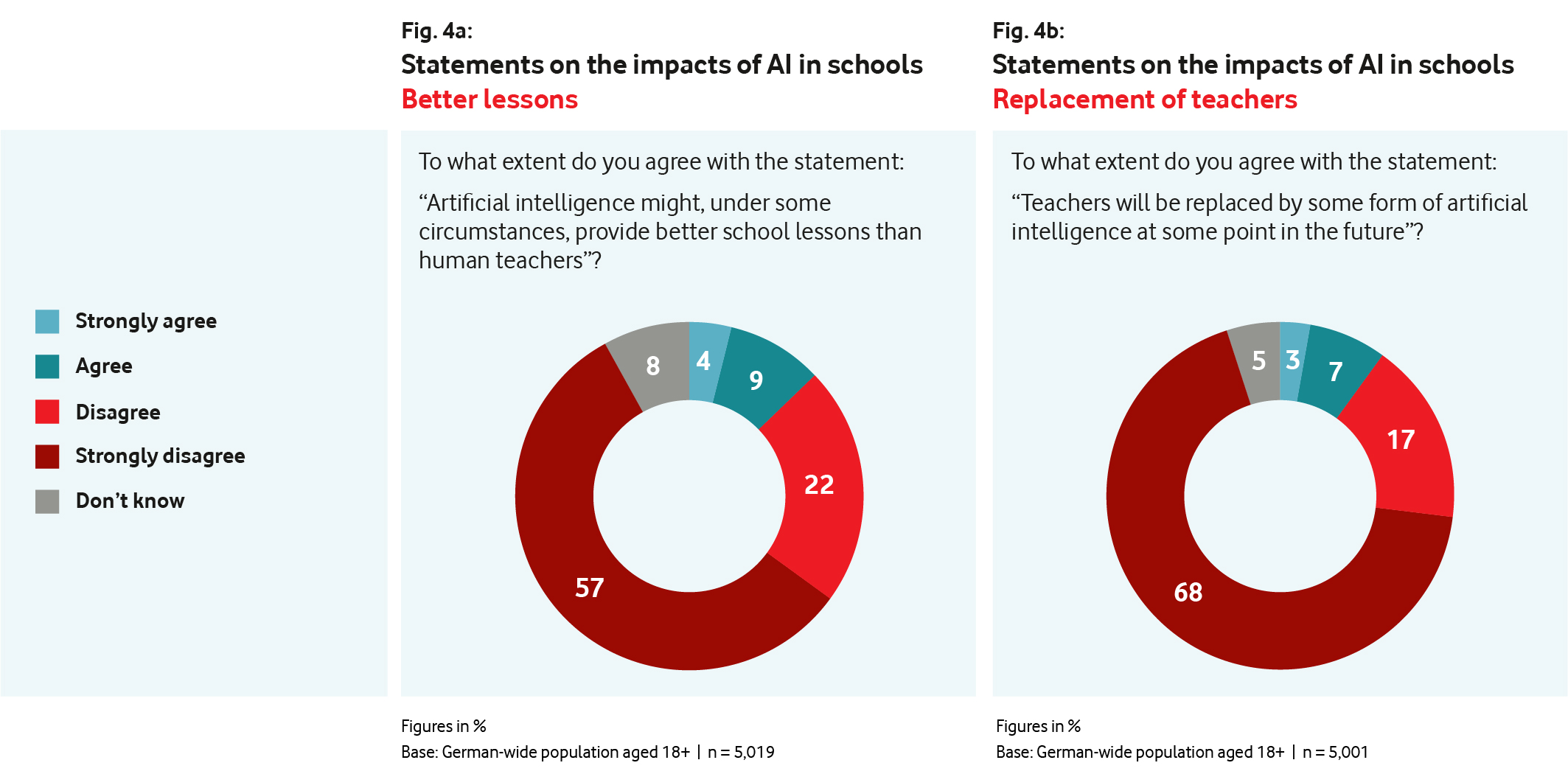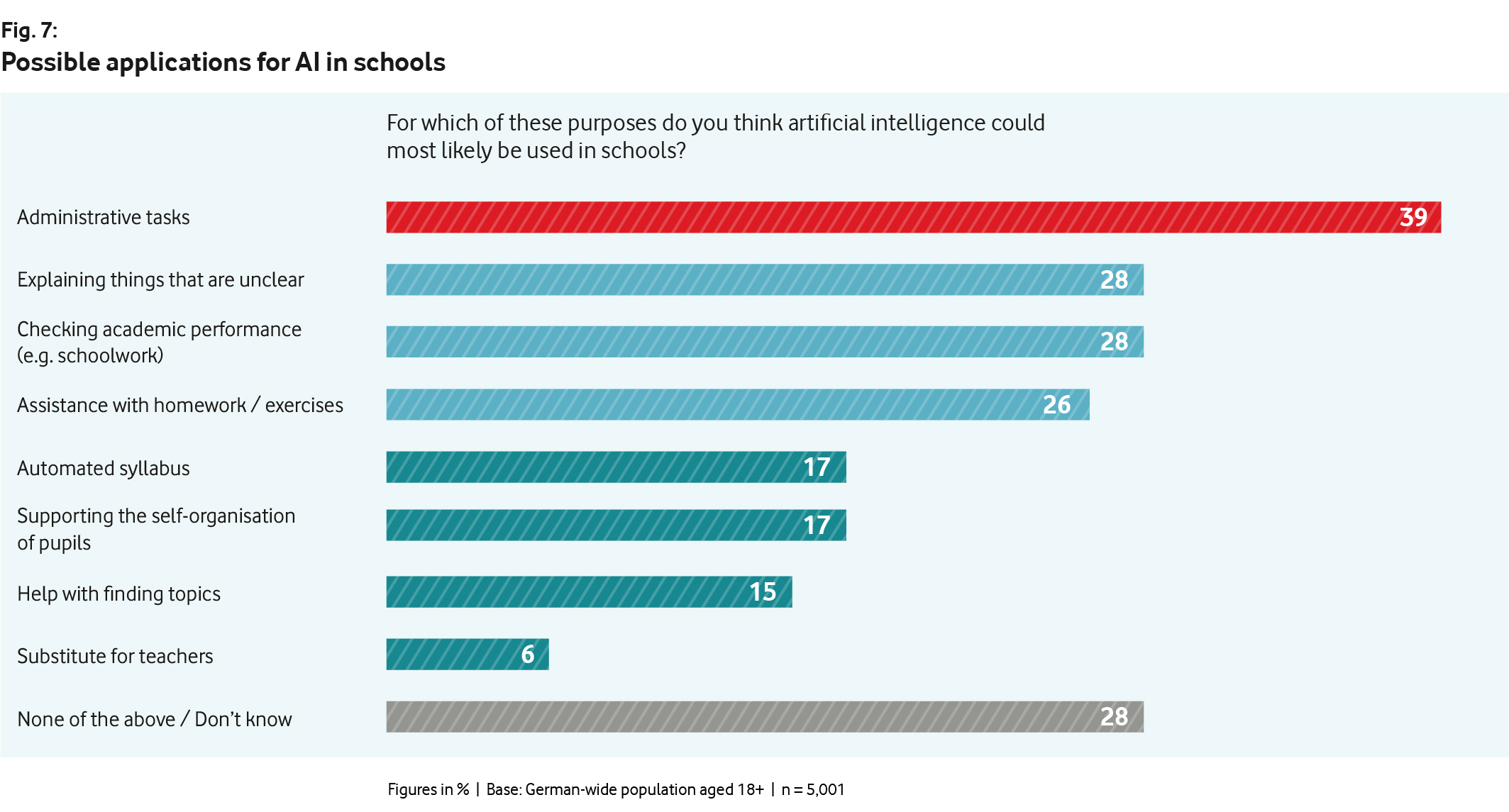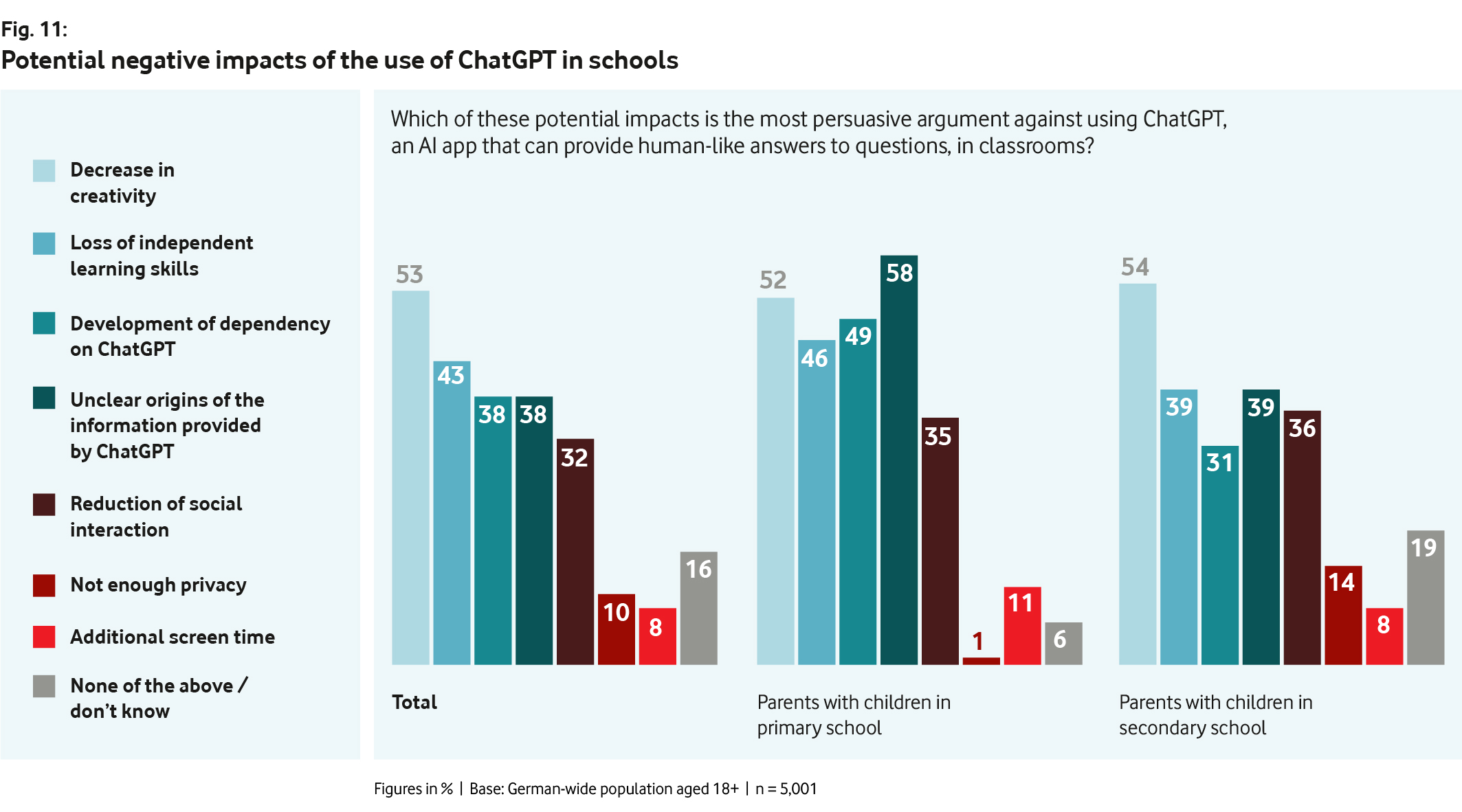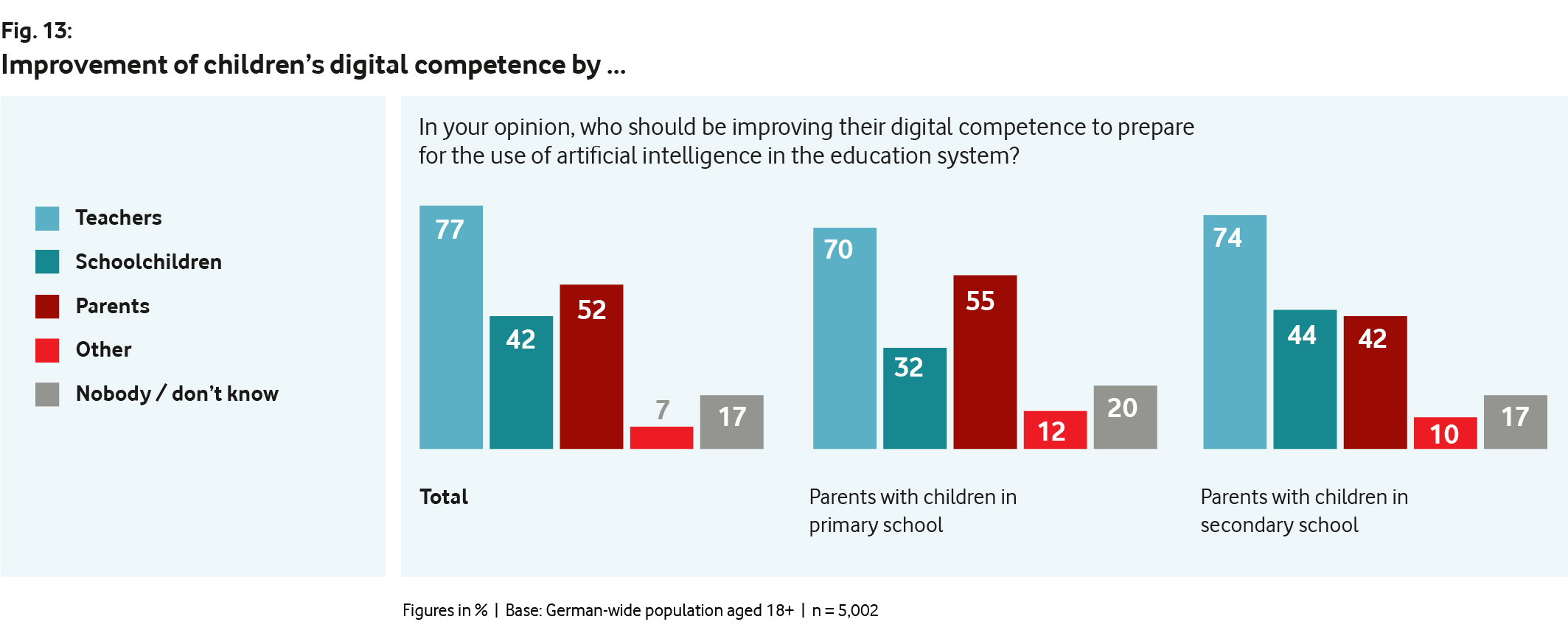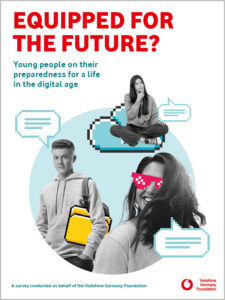20. April 2023
Survey: majority sees AI in schools critically – but still wants it as part of the curriculum
- Representative survey by the Vodafone Germany Foundation: The majority (54 percent) of respondents expect AI to significantly change teaching in schools.
- However, more than half (57 per cent) currently see the use of AI in the school context more as a danger than an opportunity.
- At the same time, a majority of respondents overall and of the parents surveyed would like to see the use of AI-supported applications become part of the curriculum.
- 77 percent see teachers as responsible for equipping students with a set of competencies that will enable them to deal with AI in a reflective way.
Both the general population and parents of school-age children are still sceptical about the use of artificial intelligence in schools. Nevertheless, a majority also wants it to become part of the curriculum. It sounds contradictory, but it is not. For those who have understood that artificial intelligence, such as ChatGPT, is here to stay, would rather prepare their children for it. In order to strengthen the digital competences of pupils, it is above all teachers, but also parents, who have a duty. These are the results of the representative study:
PDF Title …
On behalf of the Vodafone Foundation Germany, 5,000 German citizens aged 18 and over and around 500 parents with children up to the age of 18 were surveyed.
On a longer-term timeline, artificial intelligence undoubtedly has immense potential to influence and change schools in Germany in many ways. Taking a “wait and see” approach in case AI is just a new education fad that will fade into the background again is probably the most ill-advised course of action possible.
Matthias Graf von Kielmansegg
Managing director Vodafone Germany Foundation
Artificial intelligence will significantly change everyday life at schools
More than half of the respondents (54 percent) already assume that AI will significantly change teaching in schools. Thirteen percent of the respondents see the impact in the next two years, one in four in 3-5 years (25 percent) or even later (28 percent).
People who believe that AI can speed up thinking and understanding processes are wrong. AI is not a replacement for learning… But if they are integrated into lessons in a targeted way, AI apps like ChatGPT can initiate, structure and personalise learning processes. However, we have to be aware of the limitations of AI and be capable of scrutinising and assessing its results.
Heinz-Peter Meidinger
President of the German Teachers’ Association
(Deutscher Lehrerverband)
“Educate, try out, accept, act.”
However, the majority of respondents (57 percent) see a danger in the use of AI in schools. Among parents of school-age children, even more than 60 percent are of this opinion. Only about one third of all respondents (34 percent) see the use of AI in the school context as positive or as an opportunity.
Majority wants AI to be part of the timetable: Teachers and parents have a duty
Despite the general scepticism towards AI applications, the realisation of its inevitability seems to be already well advanced. For example, 55 percent of respondents and 66 percent of parents of primary school children would like to see the use of AI-supported applications become part of the curriculum. The respondents expect teachers to acquire sufficient digital competence to be prepared for the use of AI in the school environment. According to the respondents, this means above all that teachers should be able to promote critical thinking and the use of information sources. The topic of data security, on the other hand, was rated less important by the respondents.
Our children have to learn how to think critically about using AI-based tools, be aware of the undisputed risks and know how to deal with them. We parents need to have that same knowledge. We need to bring ourselves up to speed on the subject so that we can talk about it with our children.
Dr. Oliver Ziehm
Chairman of the North Rhine-Westphalia Grammar Schools Parents’ Association
(Landeselternschaft der Gymnasien in Nordrhein-Westfalen e.V.)
Accepting challenges, seizing opportunities: Work of the Vodafone Germany Foundation
This survey on the opportunities and risks of the progressive spread of artificial intelligence in Germany’s schools is part of a focus area of the work of the Vodafone Foundation Germany. Understanding new technologies, using their opportunities, dealing with them responsibly and jointly creating creative solutions to the challenges of the 21st century: these are the goals of the Vodafone Foundation.

